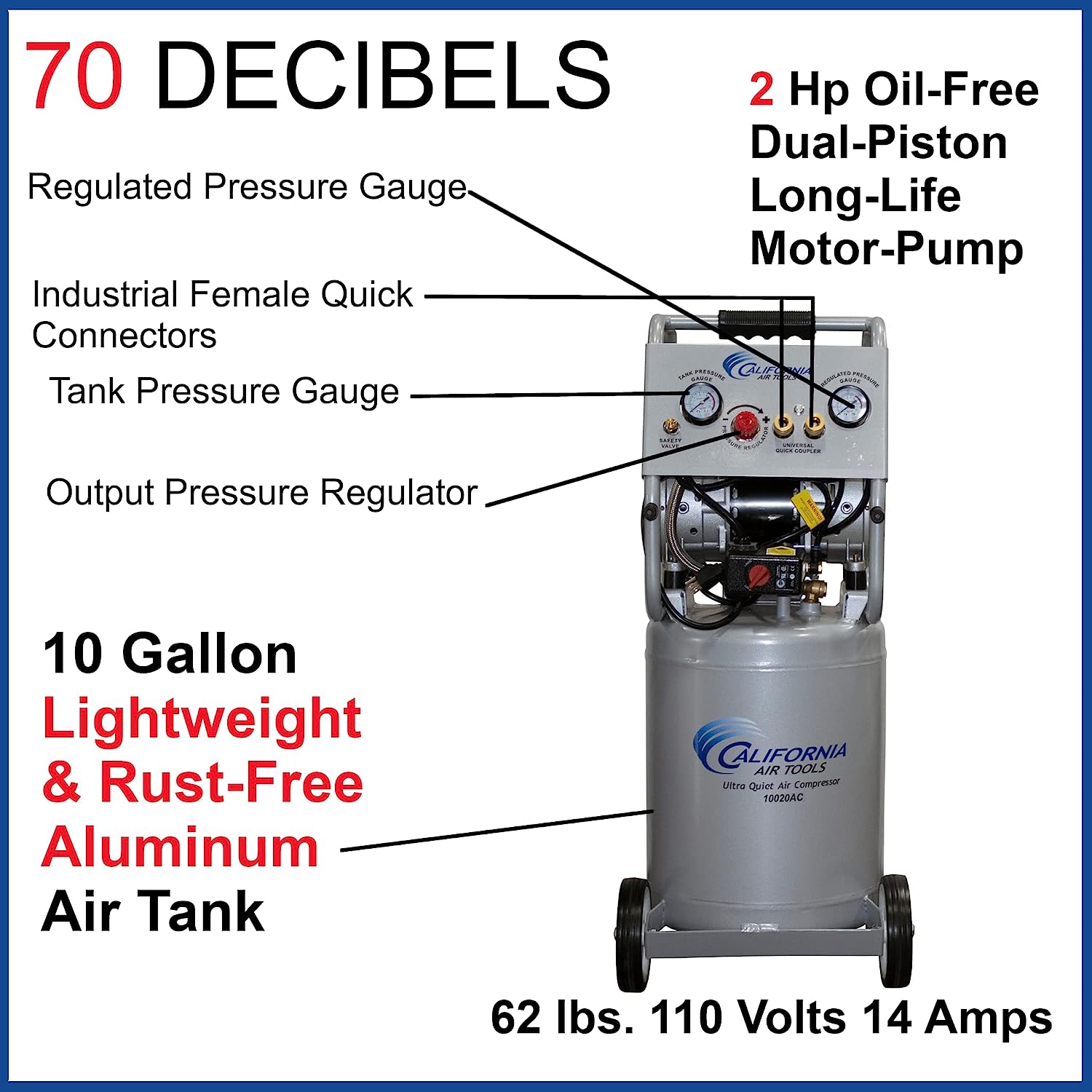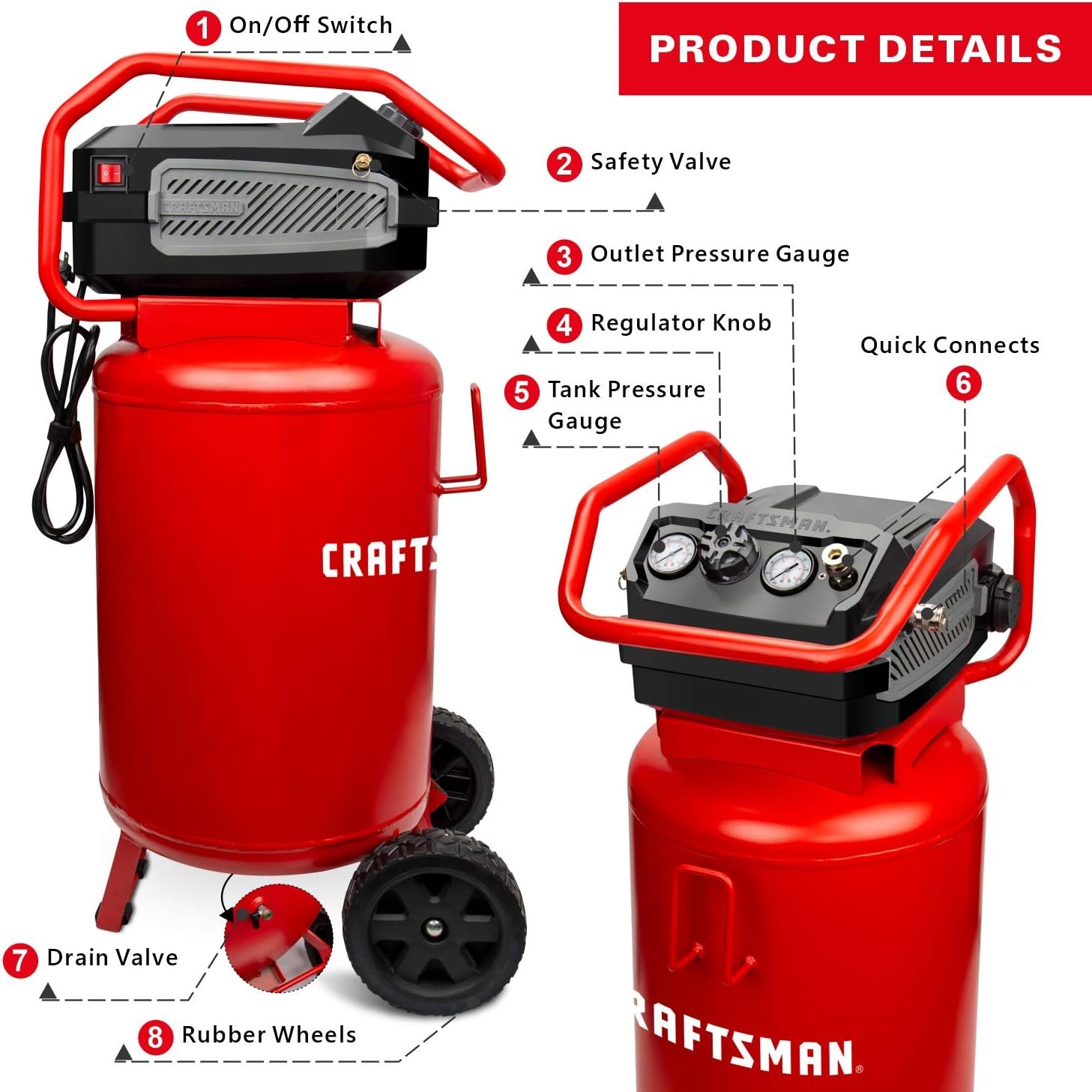In 2023, air compressors are subject to a new wave of safety certifications designed to keep workers and industries protected. These certifications introduce stringent standards and protocols to ensure the safe operation of air compressors in various settings. From increased pressure relief measures to improved monitoring systems, these latest safety certifications aim to minimize risks and promote a secure working environment. Whether used in construction, manufacturing, or other industries, staying up-to-date with these certifications has become imperative for businesses and individuals alike. Let’s take a closer look at the key features and benefits of these latest safety certifications for air compressors.
Understanding Safety Certifications
Safety certifications play a crucial role in ensuring the safety and reliability of various products, including air compressors. These certifications are issued by recognized organizations and indicate that the product has met specific safety standards and requirements. They provide assurance to consumers, users, and regulatory authorities that the product is designed, manufactured, and tested in accordance with established guidelines.
Definition of Safety Certifications
Safety certifications can be defined as official certifications issued by recognized bodies that attest to the safety and compliance of a product with specific safety standards and regulations. These certifications serve as proof that the product has undergone rigorous testing and meets the necessary criteria to ensure safe and reliable operation.
Importance of Safety Certifications
Safety certifications are of paramount importance when it comes to air compressors. They help to protect the users from potential hazards, prevent accidents, and ensure the longevity and reliability of the equipment. By adhering to safety certifications, manufacturers can demonstrate their commitment to producing high-quality products that meet stringent safety standards.
Overview of Air Compressors
Air compressors are versatile machines that convert power into compressed air. They are commonly used in various industries, construction sites, and workshops for a wide range of applications. From inflating tires and powering pneumatic tools to providing compressed air for industrial processes, air compressors play a vital role in modern-day operations.
What is an Air Compressor?
An air compressor is a mechanical device that compresses atmospheric air and generates high-pressure air for various applications. It consists of a motor, a pump, and a tank to store compressed air. The motor drives the pump, which forces air into the tank, where it is compressed and stored until needed.
Various Uses of Air Compressors
Air compressors have a multitude of uses across different sectors. In automotive workshops, air compressors power pneumatic tools such as impact wrenches, air ratchets, and paint sprayers. They are also widely used in the manufacturing industry for air-powered machinery and equipment. In the medical field, air compressors are utilized for respiratory therapy, dental operations, and laboratory testing. Additionally, they play a crucial role in refrigeration and air conditioning systems, as well as in the food and beverage industry for packaging and bottling processes.
General Safety Measures for Air Compressors
To ensure safe operation and prevent accidents, certain safety measures should be followed when using air compressors:
Common Safety Measures
- Read the manufacturer’s instructions and familiarize yourself with the equipment before use.
- Wear appropriate personal protective equipment, such as safety glasses, gloves, and hearing protection.
- Regularly inspect the air compressor for any signs of damage or leaks.
- Ensure proper grounding of the equipment to prevent electrical hazards.
- Never exceed the maximum pressure rating specified by the manufacturer.
- Keep the compressor area clean and free of debris to prevent tripping hazards.
- Use only approved hoses and fittings, and replace any worn-out parts promptly.
- Never leave the compressor unattended while it is running.
- Regularly check and maintain the safety relief valve to ensure it is functioning correctly.
The Role of Maintenance in Preventing Accidents
Proper maintenance is crucial in ensuring the safety and reliability of air compressors. Regular inspection and maintenance activities, such as checking for leaks, changing filters, and lubricating moving parts, help identify potential issues before they escalate into accidents. Additionally, following the manufacturer’s recommended maintenance schedule and using genuine replacement parts can prolong the lifespan of the equipment and reduce the risk of malfunctions.
Latest Safety Certifications for Air Compressors
As technology and safety standards evolve, so do safety certifications for air compressors. The latest certifications focus on incorporating advanced safety features, minimizing environmental impact, and ensuring compliance with international standards. Some of the latest safety certifications for air compressors in 2023 include:
Introducing Latest Certifications
ISO 9001:2015 Standard: This certification ensures compliance with quality management systems and emphasizes customer satisfaction, continuous improvement, and risk-based thinking.
ASHRAE 15 Safety Standard: The ASHRAE 15 standard focuses on safety considerations in refrigeration systems, including air compressors, and provides guidelines for the safe design, installation, and operation of such equipment.
EU Machinery Directive: The EU Machinery Directive establishes essential health and safety requirements for machinery, including air compressors, sold within the European Economic Area (EEA). It aims to harmonize safety standards and ensure the free movement of machinery within the EEA.
UL Certification: The UL Certification is a widely recognized safety certification that indicates a product’s compliance with specific safety standards set by Underwriters Laboratories. This certification is highly regarded in North America and other international markets.
How Recent Certifications Have Evolved from Past Ones
The latest safety certifications for air compressors have evolved from their predecessors by incorporating new safety features, addressing emerging risks, and aligning with international standards. These certifications prioritize factors such as ergonomic design, energy efficiency, noise reduction, and environmental sustainability. Additionally, recent certifications place an increased emphasis on risk assessment, preventive maintenance, and continuous improvement in line with evolving safety expectations.
ISO 9001:2015 Standard for Air Compressors
The ISO 9001:2015 standard is a globally recognized certification that defines the criteria for quality management systems. It focuses on enhancing customer satisfaction, ensuring consistent product quality, and promoting a process approach to quality management.
Understanding the ISO 9001:2015 Standard
The ISO 9001:2015 standard outlines the requirements for establishing, implementing, maintaining, and continually improving a quality management system. It emphasizes the importance of management commitment, resource management, process approach, and evidence-based decision making. By obtaining ISO 9001:2015 certification, air compressor manufacturers demonstrate their adherence to internationally recognized quality management practices.
Compliance Process for the ISO 9001:2015
To achieve ISO 9001:2015 certification, air compressor manufacturers must undergo a comprehensive compliance process. This process typically involves:
- Conducting a gap analysis to identify areas that require improvement to meet the standard’s requirements.
- Developing and implementing a quality management system tailored to the specific needs of the organization.
- Conducting internal audits and management reviews to assess the effectiveness of the quality management system.
- Engaging an accredited certification body to perform an external audit and evaluate the organization’s compliance with the ISO 9001:2015 standard.
- Addressing any non-conformities identified during the audit and implementing corrective actions.
- Once the organization successfully meets all the requirements, the certification body issues the ISO 9001:2015 certification, which is typically valid for a designated period.
ASHRAE 15 Safety Standard for Air Compressors
The ASHRAE 15 safety standard focuses specifically on safety considerations related to refrigeration systems, including air compressors. It provides guidelines for the design, installation, and safe operation of refrigeration equipment.
Overview of the ASHRAE 15 Standard
The ASHRAE 15 standard outlines the safety requirements for refrigeration systems to protect personnel and property from potential hazards. It addresses aspects such as refrigerant safety, ventilation, system design, piping, pressure vessels, electrical components, and emergency procedures. By adhering to the ASHRAE 15 standard, air compressor manufacturers ensure that their equipment meets the necessary safety criteria for refrigeration applications.
Implementation of ASHRAE 15 Safety Standard
To implement the ASHRAE 15 safety standard, air compressor manufacturers should:
- Design and manufacture their equipment in accordance with the ASHRAE 15 requirements.
- Conduct risk assessments to identify potential hazards and develop appropriate safety measures.
- Provide comprehensive installation and operation manuals that include safety instructions and guidelines for users.
- Offer training programs to educate users on safe operation, maintenance, and emergency procedures.
- Regularly review and update their equipment to incorporate any changes or developments in the ASHRAE 15 standard.
EU Machinery Directive for Air Compressors
The EU Machinery Directive is a legislati
Joey has over 15 years of experience in the air compressor industry. As a senior test manager at Pneumatic Performance Labs, he oversees all testing and evaluation of air compressors. Known for his technical expertise and leadership, Joey has built a strong team of engineers who provide trusted third-party testing capabilities to air compressor companies nationwide.









